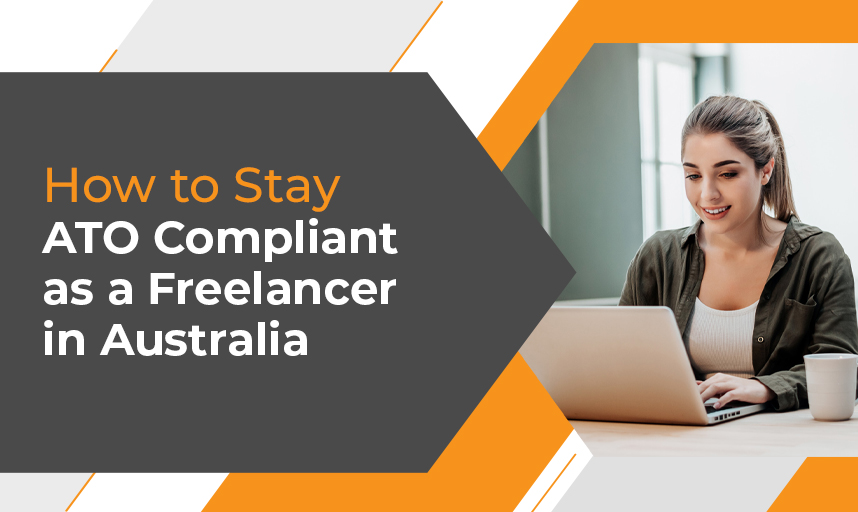How to Stay ATO Compliant As a Freelancer in Australia?

Freelancing is a popular choice that is now becoming quite popular among Australians. But very few of you might know the correct ATO compliance required as a Freelancer in Australia.
First things first. When you do freelance, you have to consider the entire income you earn through it as business income. So, you can consider yourself a sole trader. But you can choose to work in partnership with someone, or as a company. Freelancing nowadays is a popular option for people with skills like IT specialists, marketers, and more.
Basics of Your Tax Obligations as a Freelancer
As a freelancer, the income you earn is also subjected to tax deductions. In Australia, staying ATO compliant requires a basic understanding of your tax obligations. You have to register for an Australian Business Number (ABN) and a Tax File Number (TFN) if you have not done so.
As you have your ABN and TFN, you can keep a track record of your income and expenses. You can keep your bills, records, receipts, and bank statements. This will help you to report your income properly and claim all the deductions you are entitled to.
How Is Freelancer’s Income Taxed?
Freelancers in Australia earn income and this income is subjected to be taxed as personal income. So you can assume that it is subject to the same tax rates as regular employment income. This is true if you freelance for mostly one business. Else if you are not earning 80% or more income by freelancing for one business, it will be considered as a business schedule.
Also, if you use a vehicle as part of your work as a freelancer you can claim lease payments, Insurance claims, registration costs, Fuel and oil, and more. Plus, you can also claim expenses you incur if you travel for work purposes such as accommodation, airplane expenses, public transport fees, and more.
The PAYG System
The PAYG system is an acronym that stands for Pay As You Go. This is where you can make your tax payments throughout the year. But this is only if your earning is over $4000 per year, you may, subject to other conditions, would have to pay through PAYG instalments. So, you will have to make tax payments throughout the year.
Keep Records and Receipts
To claim your deductions, you have to keep your records and receipts in good order. Your records and receipts should include all the income earned, along with the expenses you incur in running your freelance business. To maintain track of your finances, you can count on accounting software like Xero or MYOB. As a freelancer, you can keep receipts related to car expenses, home-office equipment, and internet usage. You can also keep all records manually. For this, you can take the help of a spreadsheet or a bookkeeping journal.
Conclusion
To summarise, as a freelancer, you need to declare all your income to the ATO. Along with this, you have to choose the correct business structure and understand your business. Also, know how the tax will apply to your freelance income and your tax obligation. If you need any help as a freelancer in staying ATO compliant, you can rely on KPG Taxation which offers expert tax agents who can assist you in managing your tax obligations.

Focus On Growing Your Business, Leave The Accounting On Us!
- Income Tax : File your taxes & get the best claims & returns.
- Accountancy : Hire expert accountants to manage your transactions.
- Bookkeeping : Let us handle your record books and expense reports.
- Business Advisory : From company set-up to payroll, we handle it all.



